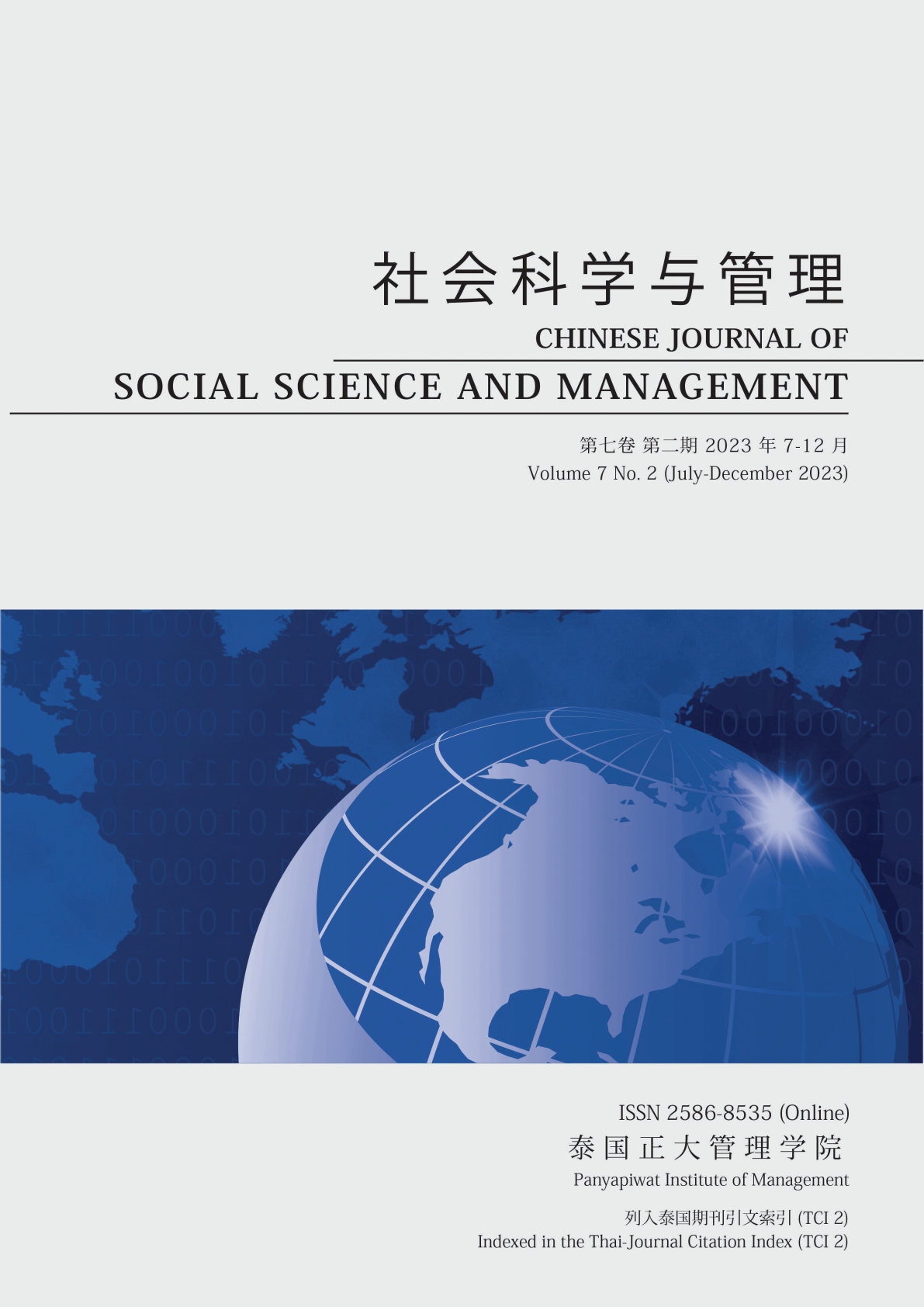THE INTERMEDIARY ROLE OF INNOVATION ABILITY BETWEEN INNOVATIVE INTENTION AND INNOVATIVE BEHAVIOR OF SCIENTIFIC AND TECHNOLOGICAL TALENTS
Main Article Content
Abstract
China’s scientific and technology system reform has entered an area of broad implementation, and scientific and technological innovation has become a major research field, while scientific and technological talents are the backbone of scientific and technological innovation. At present, the managers of scientific research institutions and enterprises have not yet gained an understanding of the intermediary factors that affect the innovative behavior of scientific and technological talents and still lack a clear comprehension of the functional relationship path by which these antecedents, such as the willingness and ability to innovate, affect the innovative behavior of scientific and technological talents. This paper therefore discusses the influence of individual innovation willingness and the innovation behavior of scientific and technological talents. At the same time, combined with rational behavior theory, this paper applies innovation ability as an intermediary variable and discusses the influence of innovation ability on the innovation behavior of scientific and technological talents. In addition, the scientific and technological talents were selected as the research object, a model of the innovative willingness and innovative behavior of scientific and technological talents mediated by innovative ability was constructed, and the influence of their innovative willingness and innovative behavior and its influencing mechanism were discussed. It was found that the innovation willingness of scientific and technological talents has a significant positive impact on innovation behavior, and also indirectly affects innovation behavior through the intermediary role of innovation ability. According to the survey results, at present, China emphasizes scientific and technological innovation, and the innovative behavior of scientific and technological talents is closely related to the development of market players. Consequently, both the government and enterprises must attach importance to enhancing the innovative willingness and strengthening the innovative ability of scientific and technological talents.
Article Details

This work is licensed under a Creative Commons Attribution-NonCommercial-NoDerivatives 4.0 International License.
Chinese Journal of Social Science and Management Editorial Division
The Office of Research and Development, Panyapiwat Institute of Management
85/1 Moo 2, Chaengwattana Rd., Bang Talat, Pakkred, Nonthaburi 11120, Thailand
Tel. 02 855 01048 E-mail: cjssm@pim.ac.th
References
Ajzen, I. (1991). The theory of planned behavior. Organizational Behavior and Human Decision Processes, 50, 179-211.
Burns, T., & Stalker, G. M. (1961). The management of innovation. Tavistock.
Gu, Y. D., & Peng, J. S. (2010). The influence of organizational innovation climate on employees’ Innovation behavior: The mediating role of innovative self-efficacy. Nankai Management Review, 13(1), 30-41.
Hu, W. L. (2013). Research on measuring tools of knowledge-based employees’ intention to Innovate: Scale development, refining and testing. Science & Technology Progress and Policy, 30(1), 141-142.
Kanter, R. M. (1988). When a thousand flowers bloom: Structural, collective, and social Conditions for innovation in organization. Research in Organizational Behavior, 10, 169-211.
Liu, J., & Zhao, X. K. (2019). Development of a multidimensional scale for Chinese knowledge workers’ perception of innovation capability. Science & Technology Progress and Policy, 36(9), 143-150.
Qiu, G. Z. (2009). Quantitative research and statistical analysis: Sample analysis of SPSS Chinese windows edition data analysis. Chongqing University Press.
Scott, S. G., & Bruce, R. A. (1994). Determinants of innovative behavior: A path model of individual innovation in the workplace. Academy of Management Journal, 37(3), 580-607.
Wang, B. (2007). Research on China enterprise science and technology talent innovation behavior [Doctoral dissertation]. Hohai University.
Xing, R., & Wang, G. H. (2015). Entrepreneurial orientation, innovation willingness and innovation performance of incubating enterprises: The moderating effect of incubation environment. R & D Management, 27(1), 103.
Yang, Z. (2012). The mechanism and empirical research on the accumulation of China’s scientific and technology talent [Doctoral dissertation]. Wuhan University of Technology.
Zaltman, G., Duncan, R., & Holbek, J. (1973). Innovations and organizations. John Wiley.
Zhang, H. Q. (2016). Cross-level effects research of dynamic capabilities and innovation climate and knowledge sharing on innovation behavior [Doctoral dissertation]. School of Management and Economics.
Zhang, Y., & You, D. M. (2014). An empirical study on the factors influencing the innovation Intention of employees in science and technology enterprises: Based on the view of TPB. Nankai Business Review, (4), 110-119.
Zhong, S. Y. (2017). Research on the relationship between innovation willingness and employee Innovation ability to employee innovation performance [Master’s thesis]. Harbin Engineering University.
Zhou, J., & George, J. M. (2001). When job dissatisfaction leads to creativity: encouraging the Expression of voice. Academy of Management Journal, 44(4), 682-696.


